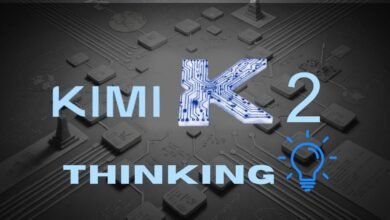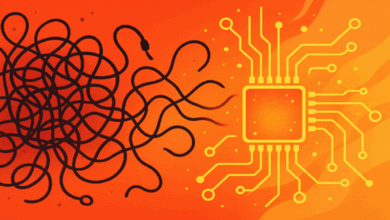Open-Source Skills: Your Career Lifeline in the AI Era

▼ Summary
– AI is expected to significantly enhance business operations, with 94% of organizations expanding AI-specific roles, but success depends on a workforce skilled in leveraging AI.
– Upskilling is critical, with 72% of organizations prioritizing it—62% faster than hiring—and technical training improving retention by 91%.
– AI will automate repetitive tasks but create new roles requiring blended skills, such as combining customer service with tech oversight.
– Certifications are key for securing AI-driven jobs, with 71% of organizations valuing them, while 56% prefer upskilling over hiring to fill skill gaps.
– Open-source tools are vital for AI adoption, with 40% of organizations using them, and open-source cultures boosting retention and skill development.
The rise of artificial intelligence isn’t eliminating jobs, it’s reshaping them. While headlines warn of mass unemployment, the real story is more nuanced. According to the Linux Foundation’s 2025 State of Tech Talent report, upskilling and open-source expertise will be the keys to thriving in an AI-driven workforce.
Organizations are racing to integrate AI, with 94% expecting it to add significant value to their operations. But success hinges on having a workforce that knows how to leverage the technology effectively. Clyde Seepersad of the Linux Foundation notes that 70% of AI transformation depends on people and processes, not just access to cutting-edge tools.
Contrary to fears, AI isn’t wiping out jobs, poor leadership is. David Brudenell of Decidr.ai points out that layoffs often stem from flawed strategies, not automation. AI excels at handling repetitive tasks, freeing professionals to focus on judgment, creativity, and relationship-building, areas where humans still outperform machines.
Take Accenture, which plans to grow its AI workforce from 57,000 to 80,000 by 2026. For professionals, this means certifications and hands-on experience are becoming non-negotiable. 71% of employers value certifications, but over half rely on internal training to bridge skill gaps. If your company isn’t investing in AI education, it’s time to take charge of your own development.
Seepersad predicts job roles will evolve rather than disappear. For example, AI now handles basic tech support, but companies still need employees who understand customer needs to refine those systems. The future belongs to hybrid roles, professionals who blend technical skills with business acumen.
For professionals, the message is clear: Invest in open-source skills, seek certifications, and focus on what AI can’t replicate. The future of work isn’t about competing with machines, it’s about working smarter alongside them.
(Source: zdnet)





